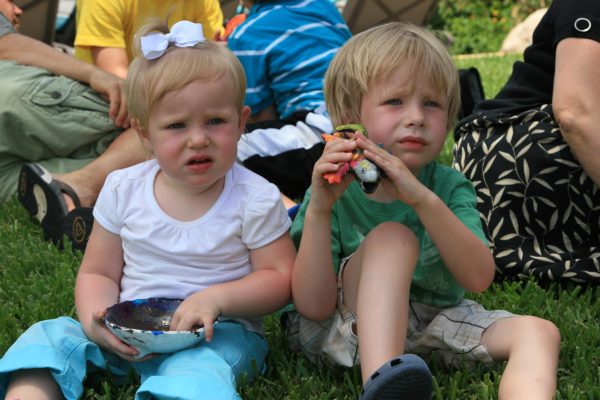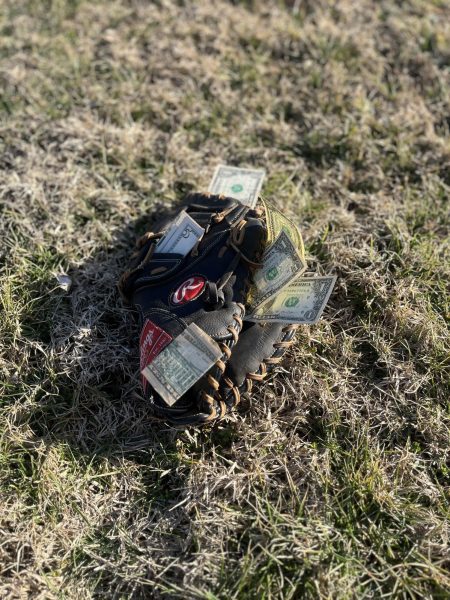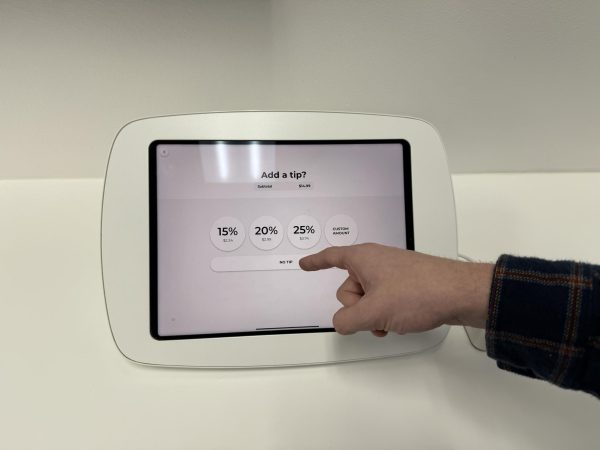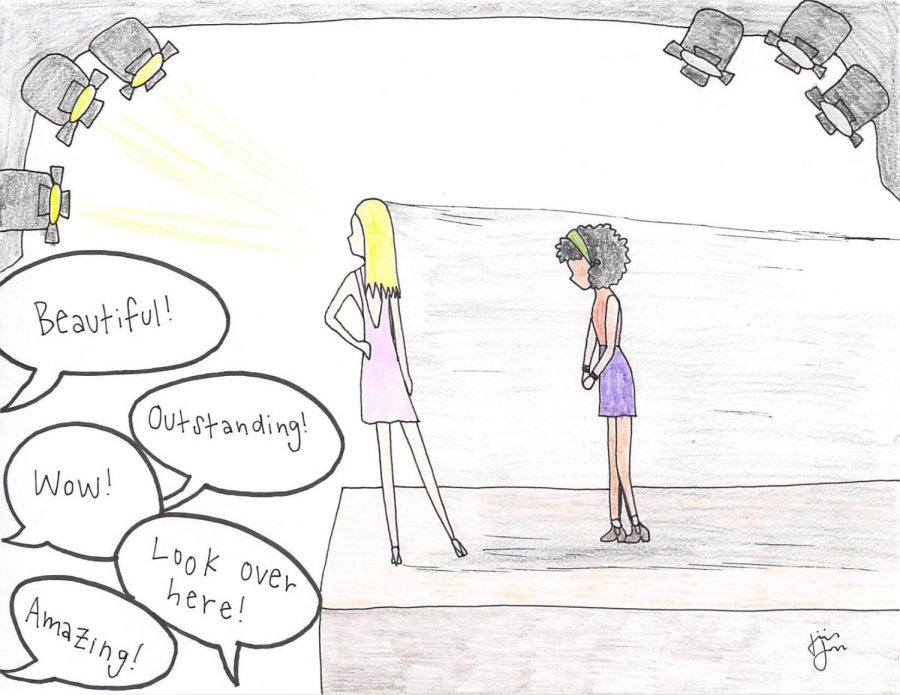Fair and Deadly: Why the Pressure to Be Whiter Should Not Be Ignored
Media by Jilian Bunderson
Women of color are often cast aside in the shadow of more prominent white women.
The smell of Fair and Lovely skin bleaching cream is an all too familiar scent for me. Flowery and elegant, the bright pink tube and the beautiful photoshopped woman’s face promise the user a whiter skin tone in the span of just a week of regular use. The box goes as far as to showcase a transformation of a frowning, melanated woman to a glowing and smiling fair-skinned beauty.
I vividly remember my relatives in India religiously smearing Fair and Lovely and other bleaching products onto their faces multiple times throughout the day in an effort to be “whiter.” Much to my 4-year-old self’s surprise, it seemed like everyone around me was trying to attain a skin color they were definitely not naturally.
Fair and Lovely’s melanin-shaming and offensive ad campaigns make millions in India. But, in politically correct and emotionally conscious America, the attitude of wanting to be whiter certainly doesn’t fly so smoothly, right?
Wrong.
In the country of tanning beds, plastic surgery and our very own West County’s orange moms, I still find countless examples of the desire to be whiter.
My brown and black friends outwardly criticize their image for being “too dark” in pictures. Countless white brunettes pray for the highly-coveted blonde hair and blue-eyed look. Bottom line is, almost every teen girl I have ever met who wanted to change their appearance wanted to change it to be whiter.
And how could we not? Ever since we could walk and talk, the girls of Gen Z have been told that girls of color are the sidekicks while the white female lead runs the show.
Some shows that shaped me growing up included “Jesse”, “iCarly” and “Good Luck Charlie.” While these shows will forever hold a special place in my heart, they failed to teach me that girls of color could be beautiful. Instead, these shows taught me people of color were the punchline, not the leaders.
Now, even as a teenager, perfect blondes fill my VSCO feed, skin-lightening filters find their way on Snapchat stories and I constantly hear girls around me putting themselves down for not fitting such a narrow ideal. It’s heartbreaking to hear my friends call themselves ugly just because they don’t have a certain skin tone or look, and it makes me realize the imminent need for change.
Thankfully, change is happening. Popular TV shows and movies (my recent favorites include “Jane the Virgin”, “On My Block”, and “Us”) are increasingly becoming more diverse and featuring strong women of color as leads. On social media, I often see women of all skin tones celebrating their natural beauty. At school, I see diverse groups of friends and girls of all colors, shapes and sizes lifting each other up rather than putting each other down.
With more representation and by appreciating what we are born with, we can redefine what it means to be beautiful so that it includes all girls, not just the blue-eyed blondes.
Your donation will support the student journalists of Marquette High School. Your contribution will allow us to purchase equipment and cover our annual website hosting costs. You may become a PATRON by making a donation at one of these levels: White/$30, Green/$50, Blue/$100. Patron names will be published in the print newsmagazine, on the website and once per quarter on our social media accounts.
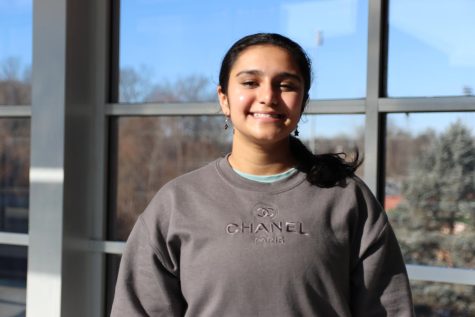
Arpitha Sistla (she/her), senior, is a Co-Online Editor in Chief for the Messenger. This will be her 3rd year on staff. Outside of the Messenger, she is...
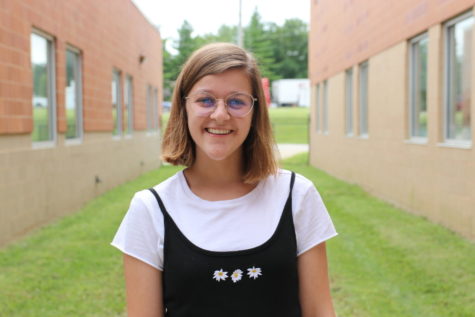
Jilian Bunderson, senior, is the Illustrator for the Messenger. She is also the co-president of Renaissance, a member of NHS, and has been involved in...




